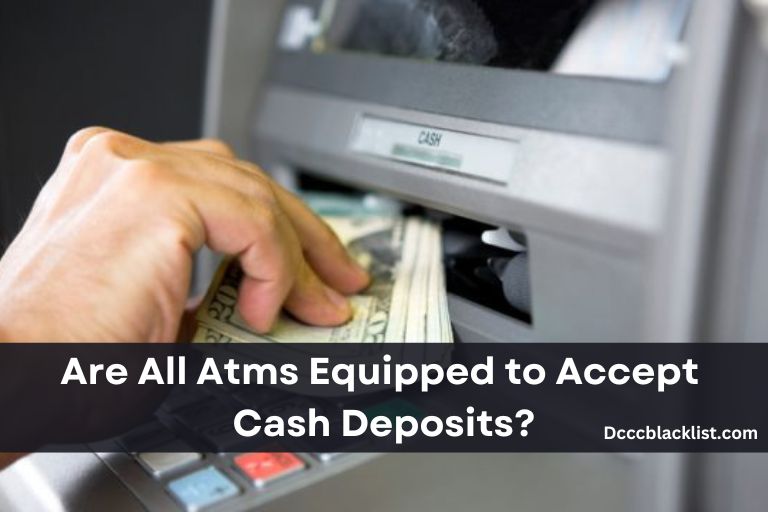Are you searching for Are All Atms Equipped to Accept Cash Deposits? If yes, then you are at the right place.

Cash deposits have long been a popular method for individuals to add funds to their bank accounts. Traditionally, this required visiting a physical bank branch during operating hours.
However, with the advent of automated teller machines (ATMs), banking has become more convenient and accessible.
ATMs offer a range of services, including cash withdrawals, balance inquiries, and even cash deposits. But are all ATMs equipped to accept cash deposits?
Let’s explore this question in detail.
The Evolution of ATMs
ATMs have come a long way since their introduction in the 1960s. Initially, these machines were primarily used for cash withdrawals, providing customers with a convenient alternative to visiting a bank branch.
However, as technology advanced, so did the capabilities of ATMs. Many modern ATMs now offer the option to deposit cash directly into your account, eliminating the need for a bank visit.
Also Read: Can You Deposit a Check at an ATM?
Are All ATMs Equipped for Cash Deposits?
While the majority of ATMs today are indeed equipped to accept cash deposits, it is important to note that not all ATMs offer this feature. Different types of ATMs cater to varying customer needs and preferences.
Basic ATMs typically only provide cash withdrawal services, while more advanced models, often found at bank branches or specific locations, offer the option to deposit cash as well.
Bank-Specific ATMs
Bank-specific ATMs, those located within the premises of a particular bank, are usually equipped to accept cash deposits. These ATMs are designed to serve the customers of that specific bank and provide a wide range of services, including cash deposits.
However, it is essential to verify the ATM’s capabilities with your bank, as certain branches or specific types of accounts might have limitations on cash deposits through ATMs.
Independent ATM Networks
Independent ATM networks, often found in public places like malls, convenience stores, or gas stations, may or may not support cash deposits. These ATMs are typically part of a network managed by an independent company, and their functionalities can vary.
While some of these ATMs do allow cash deposits, it is advisable to check for any specific instructions or restrictions provided by the ATM operator or signage at the machine itself.
ATM Features and Indicators
To determine whether an ATM is equipped to accept cash deposits, look for specific features and indicators on the machine.
Most ATMs that support cash deposits will have a designated slot or mechanism for inserting cash.
Additionally, there may be clear instructions displayed on the screen or on the machine itself indicating the availability of cash deposit services.
Alternatives for Cash Deposits
If an ATM does not offer cash deposit functionality or if you are unsure about its capabilities, there are alternative methods for depositing cash into your bank account.
Visit your bank branch during business hours, where tellers are readily available to accept your cash deposits.
Alternatively, some banks provide mobile banking apps that allow users to deposit cash by scanning the bills and uploading the images.
Conclusion
In conclusion, while the majority of ATMs today do support cash deposits, it is important to confirm an ATM’s capabilities before attempting a cash deposit transaction. Bank-specific ATMs are more likely to offer this feature, but independent ATMs may or may not support cash deposits.
Look for specific indicators and features on the ATM itself, or consider alternative methods such as visiting a bank branch or utilizing mobile banking apps. With the right information, you can ensure a seamless cash deposit experience that fits your banking needs.
Disclaimer: The information provided in this article is for general informational purposes only and should not be construed as legal, financial, or professional advice. The use of any information provided is solely at your own risk. Always consult with the appropriate professionals and consider your specific circumstances before making any financial or legal decisions. The author and publisher disclaim any liability for any reliance placed on the information presented in this article.